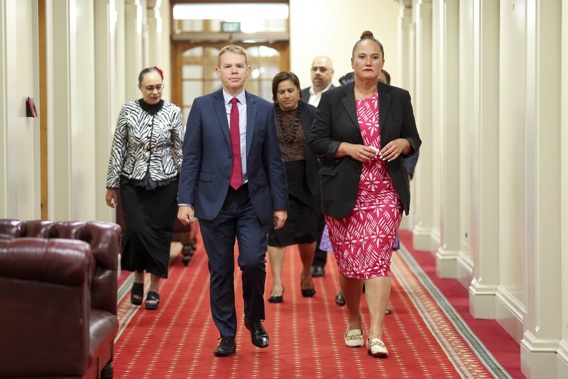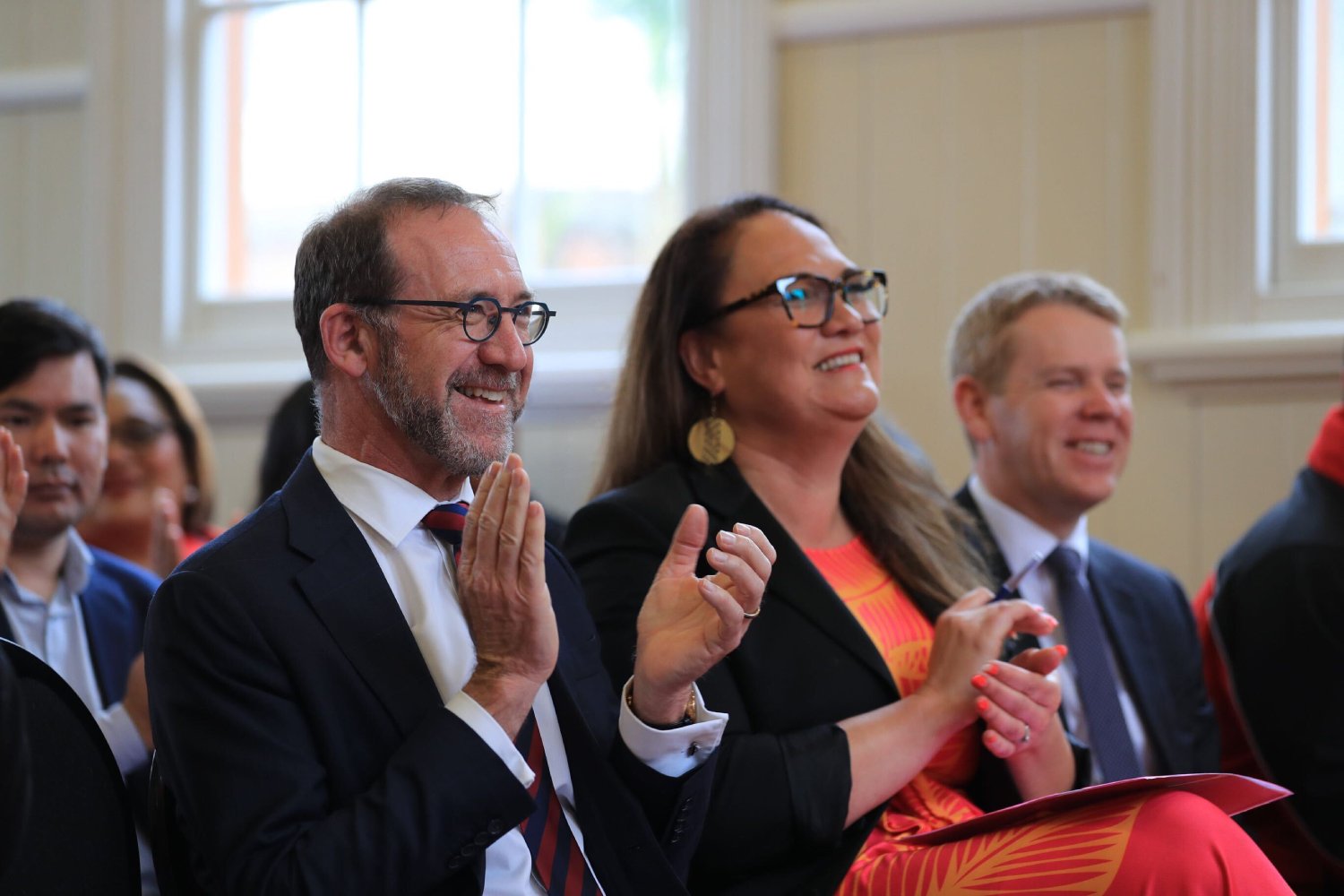
“It's all about choices” is how Labour deputy leader Carmel Sepuloni defines the substance of political partisanship in New Zealand. She points to “the stark difference between the choices Labour made and the choices this National Government is making”.
In essence, however, the choices Labour made were about how much the state should give – to the low-paid, and to those on Superannuation and social welfare benefits. When April 1 rolled around each year, argues Sepuloni, Labour gave more. This year, when measured against inflation, the coalition Government is giving less.
Because it is the coalition Government that has made these decisions – not the National Party acting alone. Sepuloni’s motivation for describing the present ministry as “this National Government” is obscure. Certainly, the deputy leader of the Opposition is extremely well-placed to describe the difference between a government comprised of two or more coalition partners, and a government able to rule alone.
Indeed, Labour is quick to defend the shortcomings of its 2017-2020 term by referencing the restraining effect of Winston Peters and his notorious NZ First “hand-brake”. Simple fairness would dictate that Sepuloni acknowledge the presence of Act and NZ First at National’s side.
The point remains moot, however, whether National would be governing any differently if it enjoyed an absolute parliamentary majority. There is an urgency to Luxon’s leadership which speaks to a profound impatience with the status quo.
His pioneering "government-by-check-list" approach confirms Luxon’s determination to effect the sort of real and rapid change that goes well beyond rhetoric. Clearly, this Prime Minister is intent on leaving behind a considerably more tangible legacy than his predecessors.

And that, too, is a political choice of arguably more significance than simply increasing the minimum wage, superannuation and welfare benefits every April.
There will be many current (and former) Labour voters who would demand to know of the deputy leader of the Opposition – and former Minister of Social Development – why she remained content, for six years, to do little more than adjust the quantum of state assistance, rather than its quality. After all, she, too, had a check-list.
Hers was provided by the Welfare Expert Advisory Group, and had she checked off more than a handful of the radical reforms proposed, hers would have been a tangible legacy entirely worthy of the Labour brand.
In distinguishing Labour from National, Sepuloni states boldly that: “Labour’s values are about ensuring everyone who works hard can get ahead – that wages rise regularly and lift people up.”
But, if that is what Labour is about, then its values are pretty much indistinguishable from National’s – a party which talks of practically nothing else but “getting ahead”. The distinction, perhaps, is that National unashamedly envisages the process as being competitive. Getting ahead, in National’s political universe, means that most people will, inevitably, be left behind.
Hence the crucial, qualifying, clause of Sepuloni’s values statement. In the context of her appeal to Labour supporters, one can only assume that it is the state which operates the elevator to happiness, and that the sole criteria for going up is hard work. Not smart work, it should be noted, not in these jobs.
That crucial omission can only mean that the deputy leader of the Opposition is making her appeal to the poorly educated working class. Those with tertiary qualifications know full well that, in their professional-managerial world, getting ahead requires a great deal more than sweat.
The ability to think creatively; network effectively; and play office politics adroitly; that’s what pushes people ahead of their peers in jobs where the state does not guarantee everyone a pay rise.
But, if Sepuloni is addressing her remarks to the “proles” alone, then there’s something else very wrong with her values statement. Fundamentally, it counsels passivity – nothing much more than a willingness to emulate the cart-horse.
In this world of hard work and low pay, it isn’t just the idea of self-advancement that is unspoken, but also the idea of collective advancement. Sepuloni makes no mention of workers’ wages rising regularly on the strength of their own collective bargaining efforts – their own unions. It’s the state that lifts them up. Nothing more is expected of them than exertion and obedience.
Are these truly the values of today’s Labour Party? If they are, then Labour’s appeal to the poorly educated working class is based on a lie.
Working hard, on its own, has never been a guarantee of getting ahead. If anyone should know this, then it’s Carmel Sepuloni. She represents an electorate in which working people are forced to hold down two or more jobs, just to pay the bills.

There are parents in her suburbs who struggle to spend quality time with their own children on account of the punishing hours they work. As Mum comes through the front door at the end of her night shift, she passes Dad heading out for the day shift. If getting ahead really was based on hard work, then these folk would be millionaires. Are they?
The interesting thing is that, as Minister of Social Development between 2020 and 2023, Sepuloni could have made a change that really would have allowed people who worked hard to get at least a little further ahead.
Had she changed the abatement rules for those on benefits, then she could have made it possible for them to find and hold onto paid employment in a genuinely liberating way. Rather than being taxed at nearly 100 per cent for every dollar earned over an arbitrarily set figure, beneficiaries could have been encouraged to find their financial footing, regain confidence, and set out once more on life’s journey – independently.
Sadly, the MSD policy of giving with one hand, and taking with the other, remained unaltered.
Why did Sepuloni not make this change? Part of the answer lies in the ferocity with which Labour politicians still cling to the idea that moving people from welfare to work is the only viable solution to poverty and all its crushing consequences. They used to know, but have long since forgotten, that the only work of any real value is the work we do for each other.
For the most part, however, Labour is forced to offer its supporters a false and hollow vision of the future. The reason being that, 40 years ago, it gave up on the idea that anything other than the market could organise human society effectively.
Labour’s embrace of free-market economics in 1984 transformed its core supporters from autonomous citizens into mere economic units, the value of which rises and falls according to the laws of supply and demand. Working hard may affect a worker’s price at the margins. It may even win that worker a promotion. Ultimately, they may rise to become CEO of the company. Certainly, that’s what Christopher Luxon understands by “getting ahead”.
But, when there’s only space for a few at the summit of the social pyramid, where does that leave the many? What are their choices?
Take your Radio, Podcasts and Music with you









